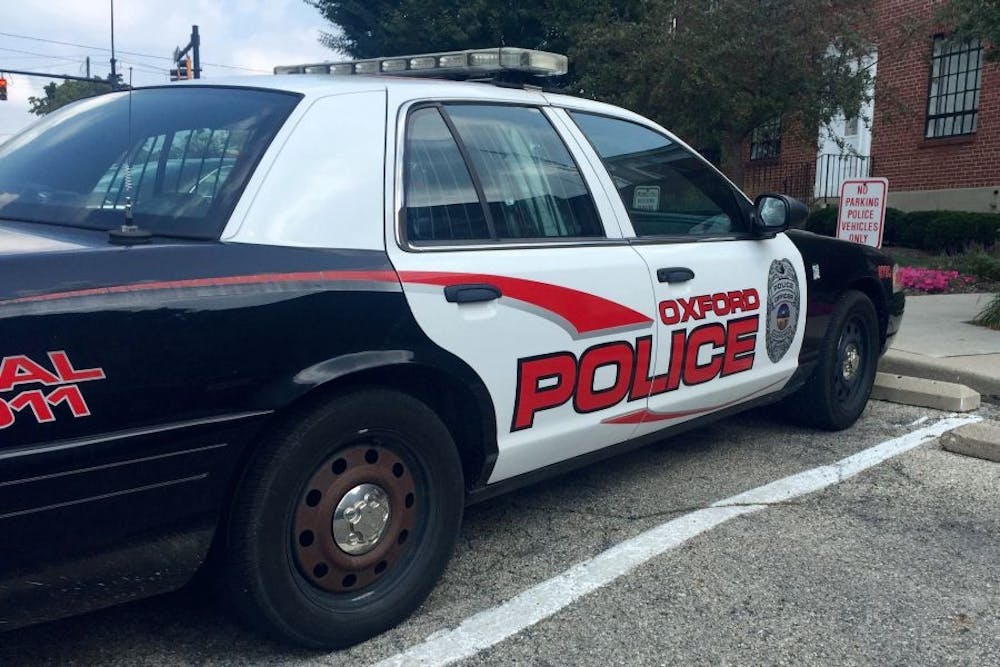By Maggie Callaghan, For The Miami Student
Walking the streets of Uptown on any given night, one might encounter students in varying degrees of sobriety. The Oxford Police Department (OPD) uses certain indicators to determine if intervention is necessary.
Contrary to popular belief, being shoeless is not among the signs that police look for when deciding whether or not to stop an individual.
According to OPD and Miami University Police Department (MUPD), officers aren't looking for shoeless girls because it's not a direct indication that someone has been drinking.
Rather, they are looking for students who may be causing harm to themselves or to others, whether that means somebody that is too intoxicated and needs medical assistance or someone that is breaking into homes late at night.
MUPD Officer Darrell Byrd said the police will stop students who draw attention to themselves or are being disruptive and may create a dangerous situation.
By being present around campus and Uptown, the police are trying to prevent any potentially harmful situation from escalating.
OPD patrol officers will concentrate on "problematic areas," like High Street around the time that bars are closing, because that is when a situation is most likely to occur, according to OPD Sgt. Jon Varley.
Varley, who worked the night shift for 16 years, explained that as OPD officers patrol Uptown, they are looking for crimes being committed, situations that they believe may escalate into a fight or a person who may need medical assistance because they are so intoxicated that they are unable to walk.
Many students claim they don't take their shoes off because they are scared that they will be stopped by the police. However, despite all the rumors that circulate, those students also understand what the police are actually looking for.
"[They are looking for] somebody that is committing a crime, like being really drunk or stupid," said first-year James Roesener.
According to both Byrd and Varley, it is not the police officer's goal to get students in trouble while they are patrolling Uptown.
"If we wanted to get every underage drinker, we would just throw a net out over High Street," Varley said.
Their objective is to keep students safe. By being present around Oxford, the police can patrol a larger area and assist quickly when something does happen.
"Our goal is to be visible and present, to deter anything from happening," Byrd said.
This year, MUPD implemented a new strategy of placing a night patrol officer outside of Pulley Diner in Armstrong during the weekend. This new strategy is part of an effort by the MUPD to be present and near students so they can intervene when a situation arises. They also hope this will deter students from acting irresponsibly.
However, some Miami students aren't convinced that having a police officer in Pulley Diner will actually change anything.
"I don't necessarily think that Pulley Diner is a problematic area because if they walked down Slantwalk and haven't been stopped then they are probably fine," said sophomore Kaira Schneider.
Other efforts made by MUPD and OPD include having double the amount of patrol officers on duty between 9 p.m. and 3 a.m. during the weekends. They will also conduct joint patrol efforts in order to give assistance.
Even taking these extra measures, some students don't believe their peers will act any differently, regardless of if they feel more of a police presence around campus and Uptown.
"Sometimes they will be smart, sometimes they will be stupid," said Roesener.
However, OPD and MUPD hope that by being visible and present in the scene, students will be smarter and safer about their actions.
"Realistically, at the end of the night, we want people to go home in the same shape that they left home earlier that evening," Varley said.

